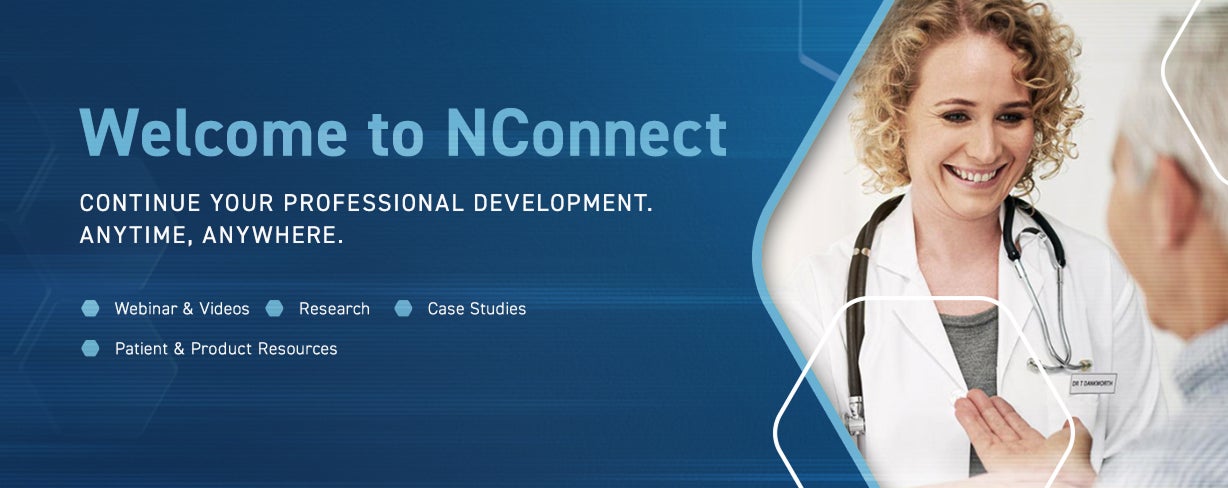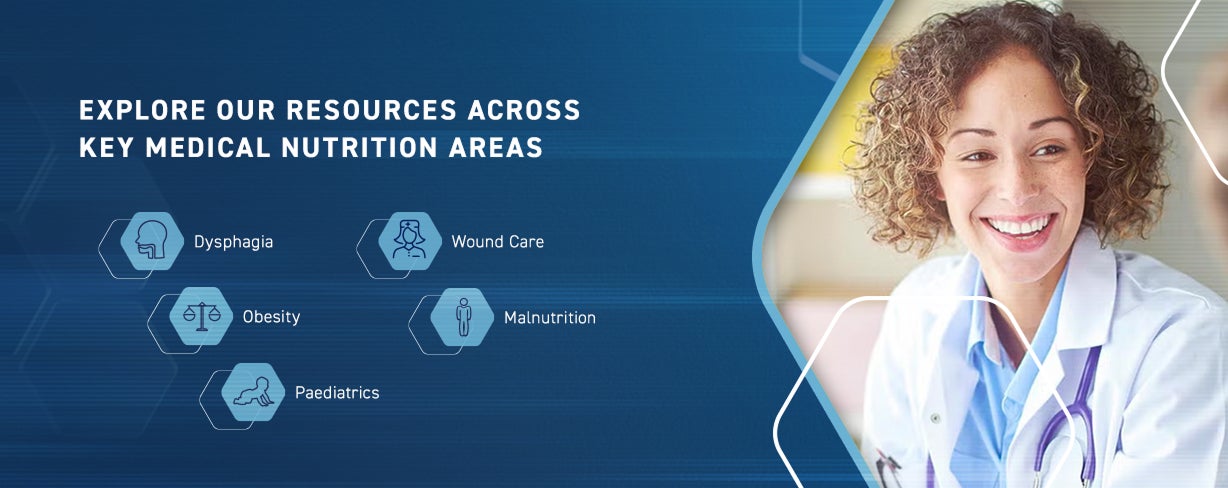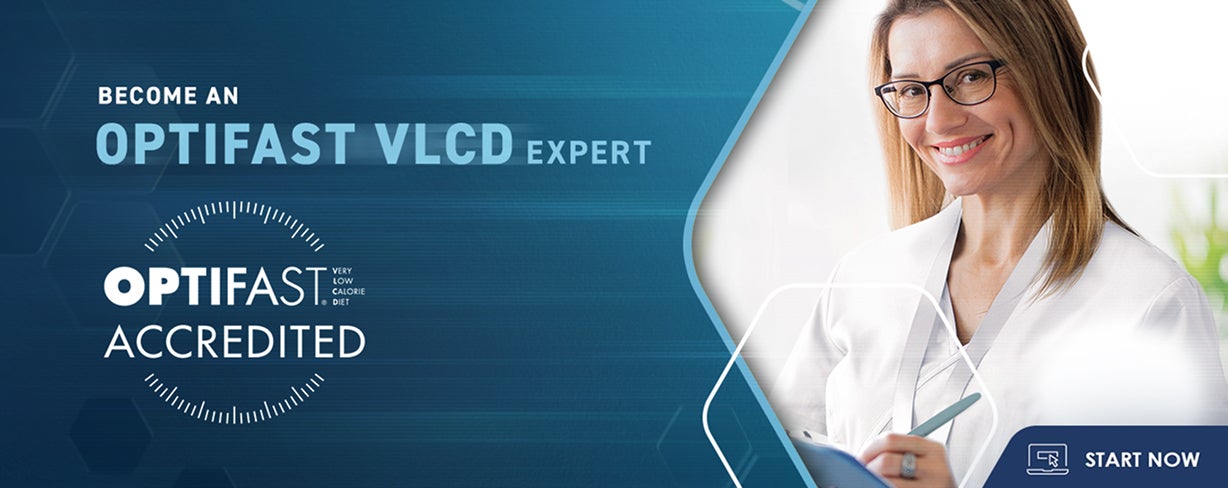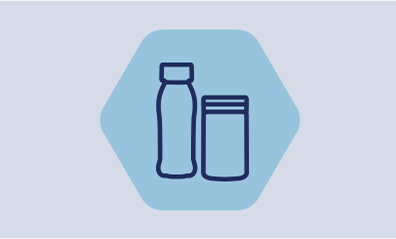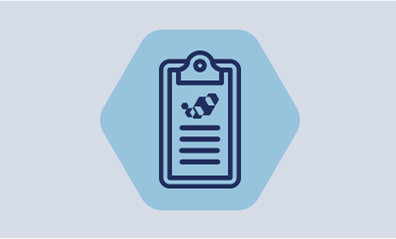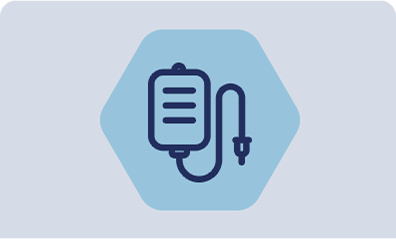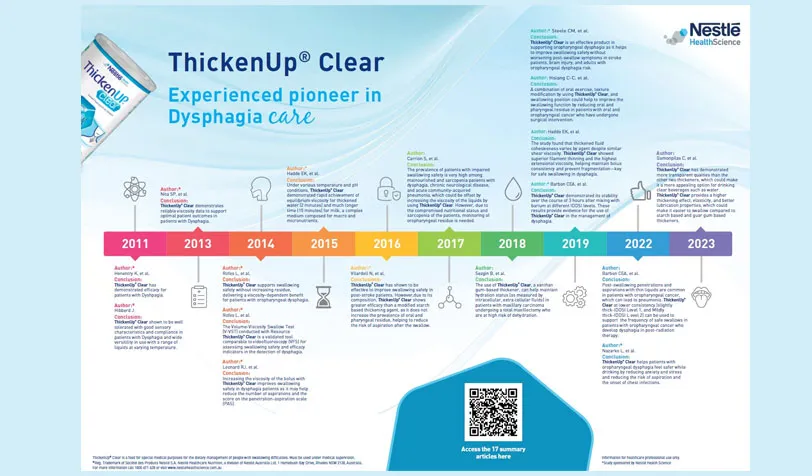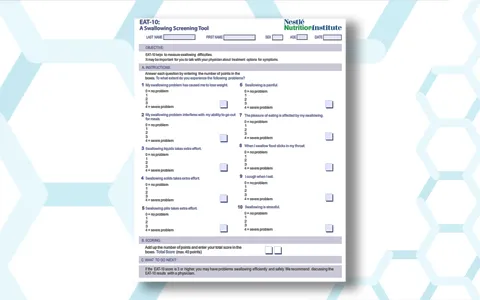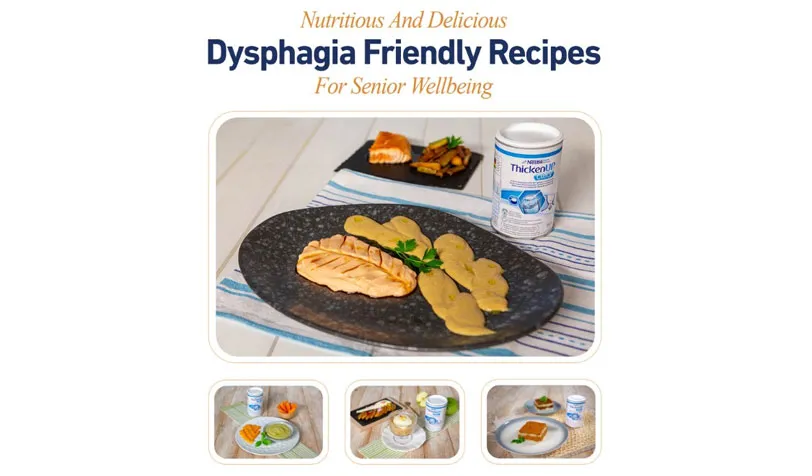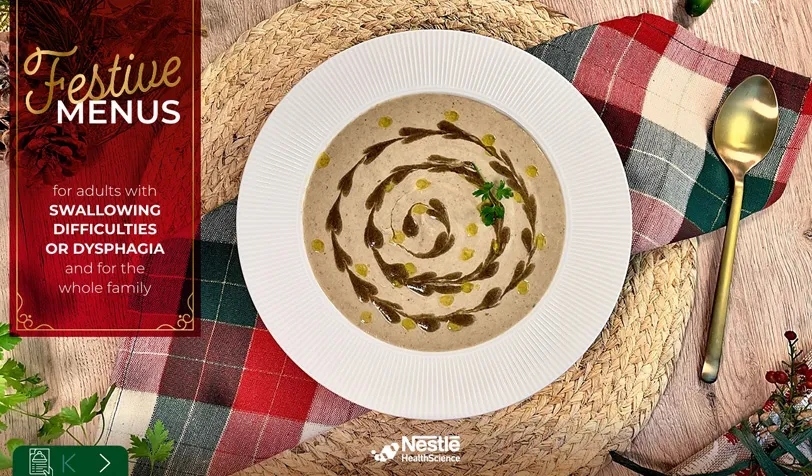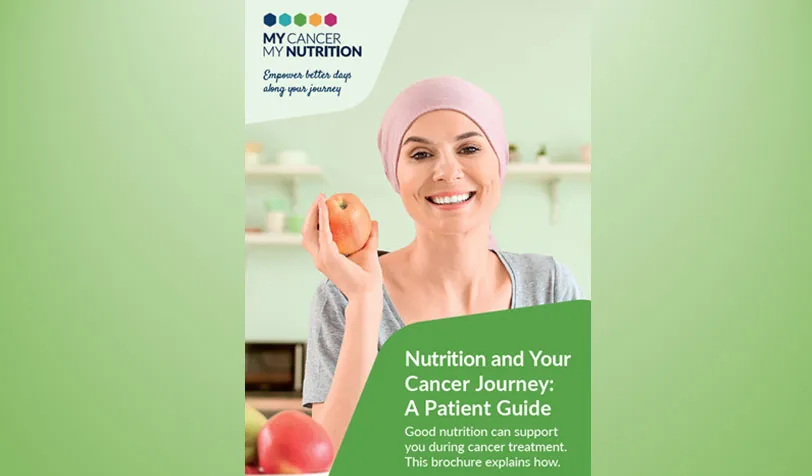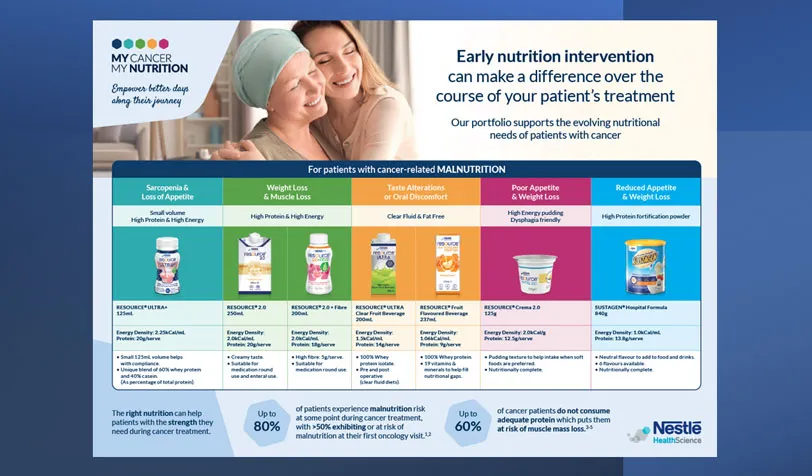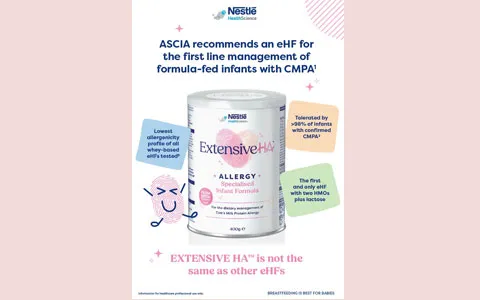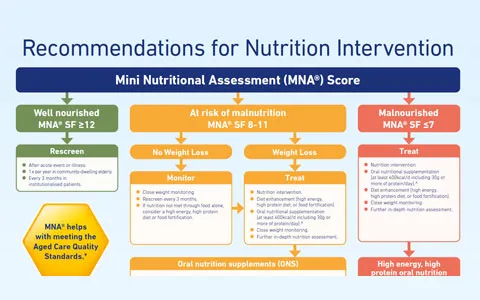Welcome to NConnect!
Nestlé Health Connect is a free resource for ANZ Healthcare Professionals.
Access a wealth of educational materials and product resources in key medical nutrition areas, including Cows' Milk Allergy, Dysphagia, Enteral Nutrition, Malnutrition, and Weight Management. You can also request samples of our products for your patients.
Products
Nestlé Health Science is your strategic partner in enhancing the quality of patient care through comprehensive nutritional solutions. Our range of solutions helps your patients whether their goal is to manage their disease, recover better and faster, or stay healthy.
See more
Highlights
Information for healthcare professionals to give to patients who use Nestlé Health Science products.
THICKENUP® Clear is the 1st xanthan gum-based thickener, scientifically proven to support dysphagia assessment and nutritional management.This Scientific Evidence Compendium summarises evidence from 17 studies that use THICKENUP® Clear. THICKENUP® Clear is a food for special medical purposes for the dietary management of people with swallowing difficulties. Must be used under medical supervision.
The EAT-10 is a validated dysphagia screening tool which is provided in an interactive format for accessibility and ease of use. This tool can be used by anyone to screen for symptoms of dysphagia, and refer on for further assessment if possible dysphagia is identified. It consists of 10 questions which provides an overall score (completed within 2 minutes).
This Recipe book includes 19 recipes that have been developed and tested to meet specific textures for people who need thickened liquids and pureed solid foods. The recipes refer to THICKENUP® Clear. THICKENUP® Clear is a food for special medical purposes for the dietary management of people with swallowing difficulties. Must be used under medical supervision.
Dysphagia at the Festive Table: Festive menus for adults with swallowing difficulty or Dysphagia and for the whole family
Brochure for patients on the importance of why good nutrition matters during cancer treatment, with practical guidance for addressing challenges in maintaining adequate nutritional intake.
Supporting oncology patient care through evidence-based nutritional support. A concise guide for HCPs on integrating nutrition into oncology care plans. highlighting the importance of early intervention and its positive impact on patient outcomes.
Nutritional challenges are common among cancer patients. Discover more about nutritional products designed to support patients throughout their treatment journey. Tailored medical nutrition can help improve outcomes for those requiring additional support or experiencing side effects from cancer therapy.
EXTENSIVE HA™ is a specialised whey based, extensively hydrolysed infant formula (eHF), suitable for mild to moderate Cow’s Milk Protein Allergy (CMPA).EXTENSIVE HA™ is a special medical purpose product for infants, formulated for infants with Cow’s Milk Protein Allergy, for use only under medical supervision.
The Mini Nutritional Assessment (MNA®) is a validated screening tool to help identify individuals over the age of 65 who are malnourished or at risk of malnutrition to help determine nutritional status. This guide provides recommended nutrition interventions based on the patients' MNA® scores.
